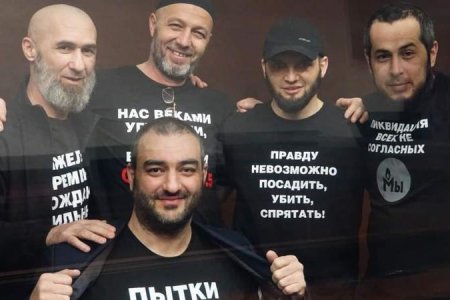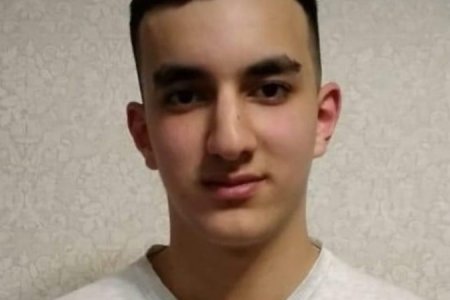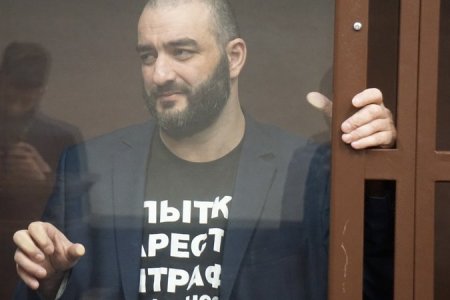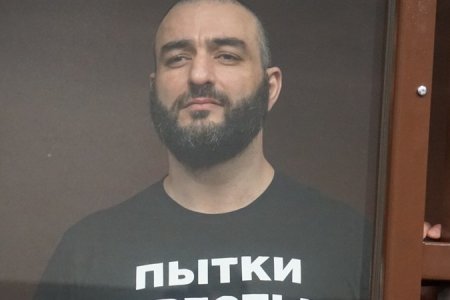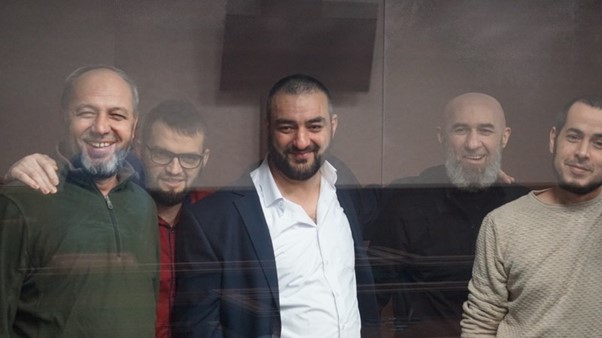
A Russian court of appeal has upheld 12- and 14-year sentences passed against five Crimean Tatar civic activists who refused to look away when others were facing persecution for their faith and / or human rights activities in occupied Crimea. This is not the first time that ‘judges’ from the Military Court of Appeal in Vlasikha (Moscow region) have ignored glaring miscarriages of justice, and the ruling cannot be called unexpected. That does not make it any the less shocking since there has never been any doubt that the charges against the men were concocted as part of Russia’s worst offensive against the Crimean Tatar human rights movement to date, and all the men are internationally recognized as political prisoners.
The fact that both the original verdict on 12 May 2022, and the rejection of the appeals by ‘judge’ Anatoly Solin on 17 May 2023 were on the eve of the anniversary (on 18 May) of Stalin’s Deportation of the entire Crimean Tatar people from Crimea may not have been planned in advance. For Crimean Tatars, however, the echoes could not be more bitter. Stalin and, later, the Soviet regime, used lies about the Crimean Tatars as excuse for the 1944 Deportation and for ongoing repression against the Crimean Tatar people. Since 2014, the Russian occupation regime has used similar tactics, this time fabricating ‘terrorism’ charges without any crime, in vengeance against the main indigenous people of Crimea for their identification with Ukraine.
It was clear from the beginning of the appeal hearings that justice should not be anticipated. On 15 May, ‘judge’ Solin rejected all applications for the so-called ‘experts’ and witnesses in the case to be questioned, although the defence had been prevented from questioning them during the original trial. This was an evident violation of the men’s right to a fair trial, one that was then perpetuated at appeal level. Solin claimed that if “in the consulting chamber” he should decide that there had been infringements over the refusal to question witnesses, he would take the appropriate decision. The scepticism expressed at the time by lawyer Emil Kurbedinov proved entirely justified. Solin spent just half an hour in the ‘consulting chamber’ before coming out and upholding all five sentences.
This means that the five sentences passed by Rizvan Zubairov (presiding); Maxim Nikitin and Roman Saprunov from the Southern District Military Court on 12 May 2022 have now come into force. That ‘court’ sentenced Bilyal Adilov (b. 1970), a builder and civic activist to 14 years’ harsh-regime imprisonment and then 18 months restricted liberty. 12-year harsh-regime sentences, with a subsequent year’s restricted liberty were passed on Tofik Abdulgaziev (b. 1981), a sound technician and Crimean Solidarity activist; Vladlen Abdulkadyrov (b. 1979), a mobile communications technician, who actively helped organize food parcels for political prisoners: Izet Abdullayev (b. 1986), a gas and electric welder, who also attended politically-motivated court hearings; and Medzhit Abdurakhmanov (b. 1975), a carpenter, builder and Crimean Solidarity activist.
The five men were among the 25 civic journalists and activists, most of them from Crimean Solidarity, who were arrested either on 27 March 2019 or shortly afterwards.
This obvious attempt to silence men involved in highlighting repression in occupied Crimea and helping the victims received international condemnation from, among others, the European Parliament and US State Department. Human Rights Watch was unequivocal in stating that “the sweeping arrests in Crimea aim to portray politically active Crimean Tatars as terrorists as a way to silence them”. This was reiterated by the Memorial Human Rights Centre who called the arrests and charges Russia’s attempt to destroy the Crimean Tatar human rights movement, and declared all of the men political prisoners.
The five men whose appeals were rejected on 17 May were charged solely with ‘involvement’ in the Hizb ut-Tahrir movement, a peaceful transnational Muslim party which is legal in Ukraine and which is not known to have carried out acts of terrorism anywhere in the world. Russia has never provided any grounds for its highly secretive 2003 Supreme Court ruling that declared Hizb ut-Tahrir ‘terrorist’, yet this inexplicable ruling is now being used as justification for huge sentences on supposed ‘terrorism charges’. Five other civic journalists or activists, including well-known journalist Remzi Bekirov, faced the more serious charge of ‘organizing’ a Hizb ut-Tahrir group (Article 205.5 § 1 of Russia’s criminal code).
The aggressor state illegally occupying Crimea also charged the 25 Ukrainian citizens with “planning a violent seizure of power and change in Russia’s constitutional order” (Article 278). This charge has also become standard, although not one of the armed searches of the men’s homes found any weapons, and there is no evidence at all of any plans to commit violence.
The prosecution split the ‘trial’ up into five separate cloned trials, making it considerably harder to follow the proceedings and ensure international attention.
Although the charges are under Russia’s terrorism legislation (which is illegally used in occupied Crimea), the only ‘proof’ even formally required is of ‘involvement’ in Hizb ut-Tahrir, not of any actual crime, or even plan to commit one.
‘Proof’, moreover, should be understood very loosely. The FSB increasingly bring ‘prohibited religious literature’ with them (and claim to have ‘found’ it) when they carry out armed ‘searches’, without lawyers being allowed to be present.
The actual charges were based on innocuous discussions about religion, politics, courage which were illicitly taped back in early 2016. Three years elapsed before the FSB carried out the arrests, making the ‘terrorism’ charges seem especially preposterous. Faulty transcripts of these conversations were sent to FSB-loyal ‘experts’ who found whatever the FSB wanted them to find. The defence obtained independent expert assessments by people actually qualified in their field. Their analysis of the supposed expert assessments was damning, but ignored by the court.
The latter also collaborated with prosecutor Yury Konstantinovich Nesterov in allowing anonymous or secret witnesses despite the lack of any evidence that these ‘witnesses’ would be in danger if they testified openly. There is considerable evidence that ‘anonymous witnesses’ are often people who have themselves been tortured and / or threatened with imprisonment if they do not collaborate with the FSB. It is invariably these alleged witnesses who claim to have heard the defendants admit to being members of Hizb ut-Tahrir , or similar. They almost always claim to remember particular ‘incriminating conversations’ while demonstrating total ‘amnesia’ about everything else. In the last report on occupied Crimea from UN Secretary General Antonio Guterres , there was particular criticism of Russian convictions based almost exclusively on anonymous testimony, and of the role played by Russian judges in upholding such practice and preventing the defence from exposing the flaws in this alleged ‘testimony’.
Please publicise the above information! Publicity is needed for Russia’s abuse of criminal charges and huge sentences to silence civic activists in occupied Crimea as well as efforts to secure the release of its victims.
Information about the men’s addresses in order to write to them will be posted on this site as soon as they become known.
